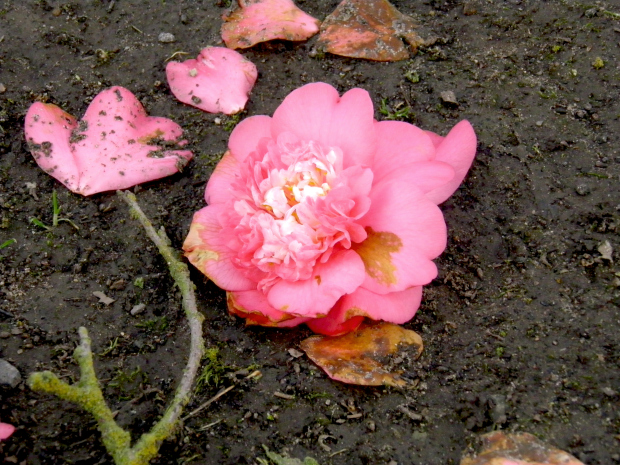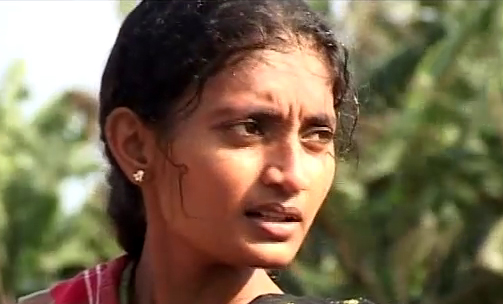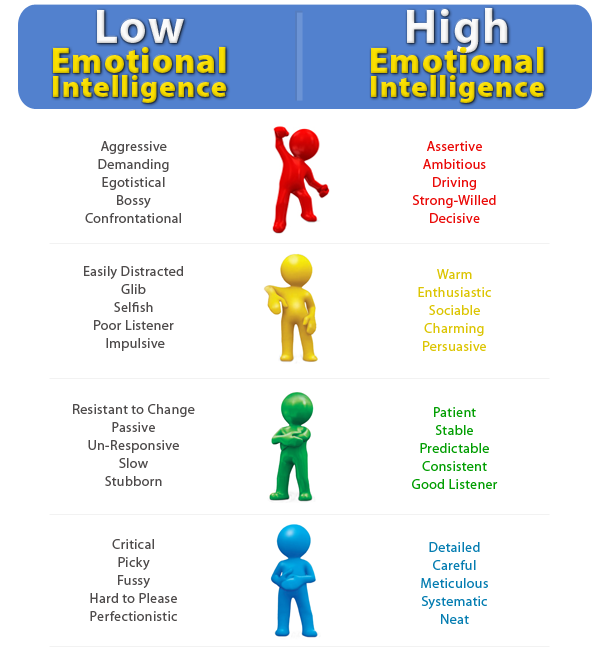Archive for the ‘Speak Out’ Category
25th Anniversary of Maveerar NaalBy Admin - November 20th, 2013 |
 |
|
By: Athithan Kurukulasingam Maveerar Naal is a day of remembrance for our beloved soldiers who fell fighting for a cause they felt worthy enough to sacrifice their lives for. This year marks the 25th anniversary of Maveerar Naal and it is more important than ever to remember why these soldiers sacrificed their lives for us. One shouldn’t just use this day of remembrance to reflect on the struggles of our brothers and sisters, rather we should relive their sacrifices on a day to day basis. Our brothers and sisters who have perished wouldn’t want us to reflect negatively on the past; moreover, they would want us to fight for the future so that the struggles they went through would not be wasted. On November 27th we should pay homage to our brothers and sisters out of respect, compassion and gratitude. They sacrificed they lives so that we could grow up without the barriers and hardships they faced. When people imply that our children are our future, I immediately think back to our Maveerar. Most of our freedom fighters were just like you and I, young people with big ambitions, a long life to look forward to. They all dreamt about making their mark on the world; however, as much as they wanted to live their lives, they were willing to give it all up so that the kids of tomorrow never would have to worry. Sacrifice can mean many different things; giving up that last piece of chocolate; giving your cousin that toy you loved as a kid; offering your seat to an elderly person, these are all examples of sacrifices we make on a day to day life. Now let’s look at the sacrifices our fellow brothers and sisters made back home. They sacrificed first and foremost their families, a thought that many of us will never be able to comprehend. One truly cannot appreciate the value of family until they are taken away from us. Our freedom fighters in a selfless act, willingly left their families so that they can fight for the many. Another sacrifice that was made was the education of our freedom fighters. We all know the oppressive and underhanded tactics used by the government to singlehandedly restrain Tamil students from progressing on towards higher education. This methodical process prohibited even the greatest of minds from succeeding. To combat this issue, our brothers and sisters sacrificed their careers for us. Many of our fallen soldiers would be in their 40’s right now if they were alive today. Who knows what great scientist, doctor, engineer or better pioneer we could have known had they been alive. The list of sacrifices that our brothers and sisters made can go on for a very long time but there is one final sacrifice I would like to mention, comfort. Our freedom fighters gave up the comforts we take for granted in our day to day lives. Our freedom fighters gave up the comforts of their own homes; they oftentimes fought in the jungles of Mulliyvaikal; they gave up their friends; they gave up their favourite foods and many more. These small comforts cannot be undervalued. Sacrifice according to you and I may now might not seem as drastic as it once did. On November 27th we should pay our respect to those very sacrifices our brothers and sisters made. Maveerar Naal is a day of remembrance. We should stand in silence and reflect on the lives of our freedom fighters. When you go and lay your flowers or garlands on the Thuyilum Illam, you should stand humbly and with appreciation. We should as a collective whole try to find a way to bring to fruition the dreams of those we lost. The struggle to fight for our own homeland continues, we the students of today have the opportunities and means to wage a new kind of war. A war that has the capabilities to bring to light the atrocities that were committed by the government and their senior members. This war can achieve accountability and punishment for the crimes that were committed; furthermore, this war can achieve our own national state of Thamil Eelam. While our fallen soldiers rest in heaven, they will only truly rest in peace when they see the rise of a new sunrise on the soils of Thamil Eelam. “Nothing I can say will ever be able to express the feeling of Maaveerar Naal. I have always celebrated Maaveerar Naal abroad, and to actually know what sadness and pride combined would feel like whilst standing on the soil that we so long to own as ours, the soil on which thousands had shed blood and tears whilst fighting for self determination, the soil that we would one day call Tamil Eelam, was absolutely amazing.” (Sampavi, 2005) |
Thoondal: The Flower in the Thorny Bush of WarBy Admin - November 10th, 2013 |
 |
|
Thoondal: The Flower in the Thorny Bush of War As he lay in her arms, still and quickly turning cold, she could hear screaming voices and people sobbing. At first, the cries seemed closer to her, but now they grew distant, and quieter. She could feel his hand slightly graze her bare skin, as he tied the thali around her neck. She could feel the soft petals of flowers fall on her braided hair and small shoulders. She picked one up and gently sniffed its sweet smell. How she had dreamt of this day as a child. Selvan was her warrior, her hero. Everything had happened so quickly. The quick glimpses of a cute boy, who always seemed to be near her house. The smiles, and the gazes. The little love notes that she burnt as quickly as she read them, not forgetting to remember each and every line. Finding corners and tree shades to be in the presence of each other. Being close enough only to imagine the feel of each other, and now, they were finally together. Their guests ate their fill and slowly returned to their homes, stalling to repeat their wishes, and to say their goodbyes to friends and families. Night had fallen, and now, it was just Selvan and her, Mrs. Mahalakshmi Selvarajan. She smiled shyly as she remembered that night. Selvan had eventually fallen asleep, and she had rested her head on his chest. Listening to his heart beat, her eyes closed and soon she was fast asleep, when suddenly, there was a loud explosion, and a heart-wrenching scream. Her heart missed a beat and she sat up. Selvan was already at the bedroom window looking out onto the street. They could hear the neighbours also waking up to the noise. The whole ground was shaking now. She looked at Selvan, and in that gaze, they both understood. He embraced her quickly to comfort her and ushered her into the bunkers behind their house. Their neighbours had already gathered there, hastily shoving their children into the bunkers before going in themselves, and whispering instructions to each other. Some of them looked up as Selvan and Maha came, and their expressions mirrored the couple’s emotions. They had barely begun their life together, and they were already at death row. Quietly, Selvan nudged Maha into the bunker, and got in after her. The shelling had started and the ground above them shook. Selvan pulled Maha into an embrace and held her to keep her calm. The infants had started to cry in fear, and their mothers were trying to comfort them, when suddenly a young mother began to sob loudly, screaming to be let out of the bunker. It soon became clear that she had thought her husband had picked up their baby from the cot and she had hurried to the bunker. She began to hit herself on the chest repeatedly and the older women around her tried to console her. Maha could feel Selvan’s hold loosen and she looked up into his eyes. What she saw scared her, but she couldn’t say the words to stop him. She could only wish that he wouldn’t, but she knew Selvan well. She knew that, at this moment, nothing could stop him, not even her. Her heart screamed in pain, but her lips remained sealed. He kissed her softly on her head and swiftly climbed up towards the top of the bunker before anyone there could realize what he was about to do. At the entrance to the bunker, he paused, listening for the pattern of shelling. He jumped out as the others in the bunker screamed after him. ‘Selvan! Selvan!’ She closed her eyes shut, placed a hand over her heart and prayed to every deity she could think of. It seemed like he was gone for hours. She embraced herself for the worst, but hoped for all to be well. She heard hurried footsteps on the ground above, and she opened her eyes, looking towards the entrance to the bunker. Some of the older men moved towards the entrance, and one man stretched his hands out. Maha could see Selvan’s arms handing over the infant. Everybody smiled as the infant reached the man’s hands and suddenly, there was a loud explosion. The ground shook and everyone fell onto the floor of the bunker. Maha followed suit but stretched her neck to see beyond the bunker. There was no one in sight, and she knew. The screams and cries were getting louder now, and she opened her eyes to see the people around her. Not a tear fell from her eyes because her Selvan was a hero. He had given his life to save an innocent soul, a young one who might rule the world one day. That child must live to tell the tale of Selvan, she thought. Every child on this land should live to tell the tales of other Selvans too, she thought. |
Uncovering the TruthBy Admin - November 6th, 2013 |
 |
|
By: Athithan Kurukulasingam New evidence has surfaced surrounding the murder of LTTE News Reporter and singer Isaipriya also known to many as Shoba. The Sri Lankan government has been steadfast in their statements claiming that Isaipriya died in battle; however, this new piece of evidence uncovered by the Channel 4 team shines light into uncovering the real truth. Footage attained by Channel 4 show Isaipriya alive and unharmed in the custody of Sri Lankan soldiers. The footage then shows her bound and dead with visual signs of sexual torture. A woman who surrendered and was in the custody of soldiers clearly lived out the final moments of her life in pain, without humility and most importantly not with the level of dignity that is acceptable by any standard. There are clears signs of human rights violations that cannot be dismissed. The Sri Lankan government cannot just ignore this new piece of evidence; however, it isn’t difficult to pinpoint their next steps. From a historically standpoint, the government follows certain procedures when it comes to these matters. They acknowledge the fact that such evidence exists, they come out with an official statement saying that these new allegations are just that, allegations. They will say that it has been doctored, fabricated or somehow misinterpreted. This level of ownership is not acceptable by any standard but it’s the sad fate that we have to deal with. The murder of Isaipriya is a clear human rights violation and the government has to own up to it. The timing of this new video forces the hands of many political leaders around the world. The nearing commonwealth summit which features many world leaders is being hosted this year by Sri Lanka. Our own Prime Minister in a bold stand is boycotting the summit and has urged others to do so as well. The murder of Isaipriya and the human rights violations will force these leaders to make statements in lieu of the new evidence and it will also call on Sri Lanka to provide some sort of explanation that is acceptable in the eyes of the world. Sri Lankan officials have been caught doing what they have denied for so long and that is committing clear human rights violations. |
Thangachi’s Corner: Seven Steps to AcceptanceBy Admin - November 6th, 2013 |
 |
|
November 6, 2013 CTYA’s Blog has started a new Feature every other Wednesday called “Thangachi’s Corner”. “Thangachi’s Corner” is a comfortable space to discuss relatable topics and issues relevant to the Canadian Tamil youth of today. For more information about this feature or to suggest a topic, feel free to e-mail us at blogs@ctya.org! Written By: Keerthana Raveendran Well, it’s that time of year again. Applications. Maybe you’re applying to grad school. You’re rolling around your last year of undergrad and are considering further education. Maybe you’re applying to a professional program after a year of well-deserved break. Or maybe you’re still in high school considering your options and revelling in the notion that the world is still your oyster. But regardless of your position in the academic hierarchy, the application process is no fun. It’s long and tiresome, causing stress, inducing anxiety, and continuing to plague the mind until the moment you realize you’re sick of looking over your personal statement for the umpteenth time. Instead, you just send in the application before you change your mind or lose it, whichever comes first. But no fear, friend. Seeing as I’ve only filled out about twenty applications in the past two years, allow me to share my wisdom so that you may at least retain a fraction more sanity than I did when I went through the same process a while back. Ready? Here we go: 1) Start early. If your deadline is in December and you’re only now thinking that perhaps you’d like to see yourself in a Master’s program next September, you’re probably too late. Or at least, too late to have a reasonably calm and enjoyable application process (though, to be fair, you will be hard-pressed to find a calm and enjoyable application process anywhere). |
The New Generation of Rising StarsBy Admin - November 5th, 2013 |
 |
|
By: Athithan Kurukulasingam Fear, an unpleasant emotion caused by the threat of danger, pain, or harm. Growing up as a child I feared the dreaded class presentation or the speech one would have to give in front of his or her peers. I’m sure I’m not alone when I suggest that most kids hate being in the spot light. The sense of anxiety that took over at that age could not be put into words. The tension that would arise waiting to hear your name being called out was unbearable. Things did not get better once it was your turn. Clammy hands, dry throat, a voice that could barely register a decibel, these were all some of the symptoms we faced. The feeling of euphoria that would erupt after those dreaded minutes ticked by are still registered in my brain today. I hated putting myself out there plain and simple. I thought to myself, why put yourself out there in order to be scrutinized by everyone? Why be put under the microscope and be dissected for every little thing that you did? To me at that time, it all seemed pointless. Flash forward some years down the road. I have effectively broken out of that shell that had shackled me throughout childhood. The person I am today is a total opposite of what I used to be. A fragment of my old self one could say. Being shy and self conscious is a normal part of life but it effectively limits your ability to put yourself on the map. It is a barrier that can hold you back from achieving great heights. Once one can learn to control the fear anything is possible and we are seeing the by-product of that in our Tamil community. Today, we are living in a new generation of rising stars. Kids are relentless in the pursuit of greatness. We are seeing more and more people of any age put themselves out there without the fear of being judged. When I was growing up, I never really knew a Tamil singer my age apart from the kid next door that used to sing at family functions. In the technologically developed era that we live in today, one can upload a clip of them singing on YouTube and it can go viral instantly. I’m just using singing as an example but of course this can be expanded into many other categories. Now I see my fellow Tamil people putting themselves out there like never before and it’s an amazing sight. Sporadic success is from the past and now frequent breakthroughs are of the norm. While I argue that we are seeing more and more rising stars today, I would like to stress that more can be done. First of all, we should all do our part to promote local talent. I feel that this is a very crucial point. For every person that receives instant success there are just as many if not more that don’t. We all know of that person who is trying to promote themselves. That next door neighbour that used to or still does sing at local events now has the platform to put his or her self out there to a wider market. Remember what it was like for you as a kid to go and stand up in front of the whole class. No matter how good, bad or mediocre the person seems to you, we should applaud their efforts. It takes a great deal of courage for one to put themselves under the microscope. For every person that has that secret talent that only a select few know about, I call on you to put yourself out there. Showcase to the world what you have without fear because you may rise to a level of greatness that would otherwise not be possible. There is nothing to fear but fear itself, why hold back the next great Tamil dancer, musician, poet, vocalist etc…There is always a way to break through. |
Cast Out CasteBy Admin - November 3rd, 2013 |
 |
|
Written By: Kayalvizhi J. The other day, I was flipping through a local Tamil newspaper. It contained an ad, “Manamahan Thevai” (Groom Wanted) for their 28 year old daughter. In highlighting their requirements for the groom, they mentioned that they were seeking a groom of a particular caste (I will not name it here). I felt disgusted to see this being so openly advertised in a newspaper. In the Tamil community, and other South-Asian communities, caste has been a marker of discrimination. The word caste itself originates from the Portuguese word, casta. When the Portuguese arrived in South Asia, they found that among the groups, there were subdivisions, and referred to the different groups as castas. Different castes, based on the traditional work you did, have been used to discriminate people as being higher and lower. These castes are seen as being so mutually exclusive to one another, that inter-marriage, friendship and relationships among castes are frowned upon. Caste-based discrimination has been recognized as a human rights violation by the European Parliament who has adopted a resolution condemning it. Yet, in Tamil societies, caste continues to play an important role. Why? The reason caste remains prominent today, even though many disagree with it, is for a simple reason. The most basic underlying concept of caste division is based on purity – not only purity of the body, but rather purity of the spirit, mind and psyche. In the Tamil culture, purity is given upmost significance. The fact that caste has been socially constructed to be intertwined with purity is the reason that people still believe it today – they believe that association and inter-marriage among these castes can lead to ‘pollute’ this purity is the reason people subconsciously give caste an important place. When inter-marriage does occur among people of different castes, most often than not, it is the man who belongs to the ‘higher caste’ for it is believed that the men are able to with stand a ‘polluted’ force. When the women is of the ‘higher caste’, in many instances as we may have seen in recent news, her family is so ashamed that they engage in abuse and violence and in some instances kill the couple in question. However, reinforcing caste was a way for the dominant castes to retain their power and economic privilege. Although I will not name them here, the two most dominant castes, formed the elite in the Jaffna Kingdom, they were the landlords who retained an interest in commercial agriculture, and they the fishermen who raised their commercial status by venturing into trade. It was their commercial interest that allowed them to reinforce the idea that wealth, power, and purity were something that was limited to their higher castes. It worked in their favour – the public wanted to work for them, they were able to maintain a division among society through fear, and they were able to reproduce their dominant ideologies by selectively marrying within themselves. The labourers, or other caste people, never felt that they could take over what they did, and so, their businesses were protected and unthreatened. If you noticed the Tamil caste system, the labourers are the ones who make up the brunt of the so called lower castes. Reinforcing the caste system meant that the elite could remain the elite, and the labourers would not challenge the elite because they themselves bought into the ideology that they were less than because of their caste. By forcing those from ‘lower castes’ to have to remove their headgear in front of ‘higher caste’ people, by forcing them to eat separately and using different utensils, and by forcing them to sit in designated places, this division was able to thrive. In today’s time, we the new generation should be the ones to not discriminate using caste. What really is caste other than an arbitrary marker? Caste is useless, yet it is dividing us. Our unity as a Tamil community would be much stronger if we didn’t discriminate against caste. When we Tamils do not even see each other as one of us, then how can we expect unity and growth as a nation? How do you ask this can be done? Don’t ask. Why do we give enough importance to it that we ask? When we are marrying, we should not ask or care whatever caste our significant other is. Even asking just to know you are ‘the same’ reinforces caste. We should not care – because it is not important. There is so much more to somebody than what caste they belong to. If in coming years, we, the youth stop asking, stop telling, then eventually, there will be a time where will not know and it will not be significant. The power to change the caste system is something we can do – simply, by not giving importance to it. The day we stop asking ‘what caste do you belong to,’ is the day of change. |
The Lack of Tamils in Professional SportsBy Admin - October 28th, 2013 |
 |
|
By: Athithan Kurukulasingam As a child, I can fondly remember watching Hockey Night in Canada on Saturday nights. This was a ritualistic behaviour stemming from years and years of loyal support to my favourite blue and white. Within my household there wasn’t a single person who wasn’t into sports. From my dad, who raised me watching sports, to my mother who could reel off name after name of players on the Toronto Blue Jays to the Toronto Raptors. To me this was just a normal household and many of my friends shared the same insight. It isn’t an understatement to conclude that Tamils love their sports. As I grew older and my knowledge of sports grew deeper, I started to have fantasies of playing on a professional sports team. In my predominately Caucasian neighbourhood in East York, Hockey was not just a past time, it was a way of life. I played Hockey morning, noon and night. The more I played it, the better I got. These dreams started to fester in a way where there was a blurred line between dream and reality and that’s when the hammer came down. My kind and loving parents, who raised me to love sports, indicated that I had to leave sports behind to further my education and that was the end of the line for me. This got me thinking, was I just an oddity or was there some connection behind the lack of Tamils in professional sports. Physically and mentally there are Tamils ranging from teenagers to young adults suitable to play in any sport. So the lack of skill level is not a problem. If you delve even further and look at the major sports leagues in the world, you can see that there are basically no Tamils in professional sports. For the purposes of this piece I will stick to North American major sports which consists of Hockey, Basketball, Baseball, Soccer and Football. Within these sports there is not one if I’m not mistaken, Eelam Tamil that is part of a team. Why then are there a lack of Tamils in professional sports? I believe it is the way of life that we are brought up with. One won’t ever forget the hardships endured by our parents and families back home in Tamil Eelam during the war. Many escaped to foreign lands in hopes of a better life for them and most importantly their children. To reap in the rewards of their parents sacrifice, we saw an influx of Tamil Doctors, Engineers, Lawyers and many other reputable professions. Not to downplay the significance of this monumental achievement I would like to point out that we sometimes forced ourselves to commit to a profession we weren’t whole heartedly satisfied with. The Tamil community almost has a negative stigma when it comes to sports. The simple utterance of becoming a professional athlete drew jeers and laughter from my family and many of my friends shared the same sentiment. This I believe is the number one reason for the lack of Tamils in professional sports. Tamil parents want the best for their children and in their minds the best consists of becoming rich and successful. When I point out to my parents that athletes make a ridiculous amount of money, more than any Doctor or Lawyer can dream of, they quickly dismiss the notion with a wave of their hand. What needs to be clarified is that more likely than not, Tamil parents will enrol their kids in a range of sports during their childhood; however, once they become teenagers they start stressing the importance of education and this crucially is the period where the dream to play in a sport goes away. The problem is our parents tease us with the scintillating notion of playing sports and then suddenly take it away from us. Instead, if our parents led us live out that childhood obsession to become an athlete. There would be without a shred of doubt in my mind, more Eelam Tamils in professional sports. The negative conations that accompany sports within our community needs to be erased and that will further increase the chances of one day seeing a Tamil on one of your favourite teams. Since we have been looking primarily at the past I think we should look at the future and this is where things become exciting. The future generations of Tamils abroad will have parents who are more open to the concept of sports as a profession. Within your close group of friends it’s safe to say that you will have one friend that’s a sports head. If I look at myself for instance, my future kids will be if they are interested playing sports till they desire. I will not only promote sports but will encourage them to partake in as many sports as they please. The benefits of a physically active child is endless especially with the steep rise in obesity rates. The younger you get a child involved in a sport of his or her choosing the more likely they are to excel at it. The focus should shift from sports as solely an early childhood activity to one that lasts until the child pleases. Only then will we see Tamils in professional sports and the dreams of many Tamil men and women can be fulfilled. |
Generation JoblessBy Admin - October 25th, 2013 |
 |
|
Written By: Yazhini S. Yippie! I graduated. This past year, I graduated from university. It was a grand affair. My entire family came, even my father, who can never take a day off from his restaurant job, asked for a day off and came. While my parents basked in happiness, my sentiments were quite the contrary. You would think my While in school, it was acceptable to put off finding a good job, or getting married until I was done school, however now that I have completed school, the pressure to fulfill these societal expectations has increased. Despite the economy, my parents believe in the dream of their child graduating, obtaining a good job, buying a house, getting married, having a child, etc. I am not going to lie. I applied to tons of entry level jobs, jobs that required high school education even, and have not heard back. I cannot tell you about the piles, yes piles of job applications stacked on my window sill. I have seen my peers, who graduated last year or the year before still struggling to find a “respectful” job. I have seen brilliant students stuck in contract position after contract position. In this economy, finding a job is really much harder than winning the lottery. The Canadian Center for Policy Alternatives released a report earlier that highlights that joblessness is more common in Ontario than anywhere in Canada. In fact, the report highlighted that only 1 in 2 had any paid employment. (Many times, they are underemployed in precarious work). The unemployment rate for Canadian youth is 17.1% – really a shocking statistic. Studies have proven that not being able to secure a full-time continuing position has real consequences for future promotions and overall lifetime earnings. Regardless of this, I have been trying with all my heart to not let my motivation down. But it is hard. I secretly suffer in depression over my inability to find a job. I was an A student throughout my life. I was awarded honours and awards, this rejection has been quite difficult for me to accept. Sending in resume after resume has really worn me down mentally. All my life, I equated my worth with my academics, that now, having being rejected so many times, I feel as if something is wrong with me. I stay awake at night, unable to sleep, thinking of the situation I have found myself in. I am sad, I cannot explain how I feel even to my friends. I feel as though I need to pretend that everything is peaches and cream when really, I am suffering inside. I think for the students who echo my sentiments, I want to tell you, our time will come. We just have to continue to persevere. This too shall pass, but who we are as a person, through difficult and good times will remain. Use this time as a time to change the world for the better. Maybe, it is really our chance to do something more meaningful for the community – something we may not have done if we were awarded full-time continuing jobs. And finally, don’t lose hope. Keep applying, you never know when your time has come! For the Tamil parents who are reading this, I want to just please ask you, be understanding of your children who may find themselves in a similar situation. Be supportive to your children. They need your support and love more than ever right now. Yes, it would be nice to call Mala Aunty, or Kamala Aunty and tell them your child found that government job, but, the reality is, Mala Aunty and Kamala Aunty’s children are in the same situation. Instead of worrying about maintaining appearances, use this as a time to connect with us. After all, we want more than anything to succeed too. |
Thangachi’s Corner: Early Birds and Night OwlsBy Admin - October 23rd, 2013 |
 |
|
October 23, 2013 CTYA’s Blog has started a new Feature every other Wednesday called “Thangachi’s Corner”. “Thangachi’s Corner” is a comfortable space to discuss relatable topics and issues relevant to the Canadian Tamil youth of today. For more information about this feature or to suggest a topic, feel free to e-mail us at blogs@ctya.org! Written By: Keerthana Raveendran Yep. It’s that time of year again. Midterms. Ah, midterms, characterized by not only their long nights and early mornings, but by the dependency of coffee they force on us as well, reducing us to a state of sleep deprivation and binge study-eating to make up the difference. The midterm season has begun. Some of us, we’re night owls. We chug our caffeinated beverages and stay awake until the early hours of morning, finding progress in the still quiet of the dark once everyone is asleep. We set goals for ourselves and use sleep as a bribery tool, taunting our tired consciousness with the claim that the eyes can finally rest after one more chapter. Progress is a path to blissful reward. And then there are early birds. We rise with the sun, or at least we claim to; we’re usually awake well before that golden orb makes its way across the horizon. We too work in the still quiet of the dark, but effective studying usually comes as a result of the sleep already sacrificed—If I’m going to wake up at this ungodly hour, I cannot let my precious sleep die in vain. Progress is then a valiant gesture avenging lost rest. There is much controversy regarding whether it is more effective to be a night owl or an early bird, and while I can’t speak accurately to that, I can say this: seven to eight hours of sleep is not a luxury—it’s a necessity. And it’s probably in your best interest to claim them. While it may seem more productive to lay a few hours of sleep to the wayside in favour of memorizing another chapter, you’re actually missing out on a great deal of potential for consolidation. Let’s take a look at why that is. The sleep cycle is divided into two chunks—a period of non-REM sleep that is subsequently divided into four stages; and a period of REM, or Random Eye Movement sleep—this is when all of our dreams are constructed. While all stages of the sleep cycle have a role in the development of our brains, Stage II of that non-REM sleep is the one you’re going to want to get. It effectively puts all those hours you spent cramming to use. As it turns out, this stage consolidates long term declarative memories—that is, it reinforces the memorization of facts and figures. This way, when you wake up, you actually remember everything you learnt the night before, rather than feel as though your learning memory slipped away into unconsciousness the moment you opened your eyes. So subjecting yourself to three hours of sleep before an exam? Probably not a good idea. You may find yourself waking up in a panic and reviewing your notes yet again. Sleep gives you an edge in that it helps you rely more on your long-term memory than your short-term memory, which is only going to help you in the long run. During midterms, and the period of finals that follow all too soon, you are going to be doing a lot of studying. You will read a lot. You will have no social life. You will probably cry a little. But try not to sacrifice sleep if it can be avoided. After all, it is the furthest from being a waste of time. Now that that’s over with, go ahead and take that as an excuse to take a nap. Stage II of the sleep cycle and all. About the Author: Keerthana Raveendran, known by her flock as Thangachi, is an aspiring author with an eye for the eccentricities of the Tamil Canadian culture. As an unemployed student with a mountain load of student debt, she is currently broke, so you will probably be able to relate to her. As a writer, she has a special kind of wit that is present on the page and absent during the awkward conversations you tend have with her in person. Thangachi is currently a Masters student studying English at York University. Read More by Keerthana! |
Thoondal: Emotional Intelligence – The Key to Success?By Admin - October 15th, 2013 |
 |
|
“You’re such a cry-baby!” “Why are you so damn emotional? “Are you crazy or something?” “Man up already!” These are all phrases we hear when we let our emotions go, and expose our feelings to others around us. Some of us are more likely to do so than others, and as a result, are often labelled as “cry-babies” and “emotional wrecks”. But, is letting our feelings go really such a bad thing? Emotion, as defined by the Merriam Webster Dictionary, is “a conscious mental reaction subjectively experienced as strong feeling usually directed toward a specific object and typically accompanied by physiological and behavioral changes in the body.” So, emotions, in general, are not negative (though we do often seem to merge emotions and negative feelings into being one and the same). Then, why is it that the minute tears are made visible, we become labelled as being emotional? And…is such an emotional state really so detrimental? Freud’s work consisted of frequent reminders of how controlling our feelings could really affect our psychological states. I am sure it is also practically clear that this is never efficient. When we control our feelings continuously, we are like pop cans waiting to explode from built-up pressure. Daniel Goleman’s Emotional Intelligence, on the other hand, expresses the importance of understanding your emotions and this, I believe, is the solution. Emotions should not be controlled, but rather understood, and not just by the audience, but more importantly by ourselves. According to Goleman, emotional intelligence is the ability to recognize and understand your emotions. In doing so, we are able to further realize how our emotions affect people around us. The concept is simple. Understand how you feel, and you will be able to understand how others feel. Your relationships with others become stronger, and you become more effective in everything you do. Goleman’s notion of emotional intelligence is composed of five elements: self-awareness, self-regulation, motivation, empathy and social skills. An individual with high emotional intelligence is more in line with his/her emotions, being aware of his/her own strengths, weakness, and areas of improvement. As a self-regulator, such an individual is also capable of controlling his/her own emotions and impulses. Usually motivated, an individual with a high degree of emotional intelligence, is more productive and goal-oriented. Being empathetic towards others and strong social skills further allow such an individual to network, communicate well, and manage relationships. Having said all that, could it be that emotional intelligence is the key to success? Understanding our emotions and managing it, rather than caging them in, because we are constantly being told to control our emotions? Will that keep us on our path, focused and motivated? Well, if that’s the case, then why not give it a shot? However, I am sure we might need lessons on HOW to understand our feelings in order to do so, and I’m afraid my knowledge stops here. If you’ve got any insight into that, please do share! Maybe we might be on to something! |

